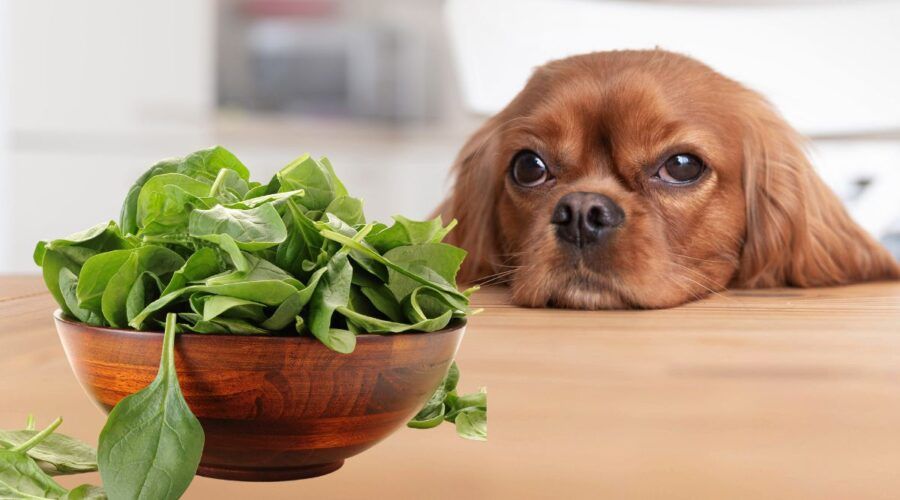Dogs and pickles may seem like an odd combination, but if you're a dog owner, you might have noticed your furry friend showing a keen interest in those tangy delights. In this article, we'll explore the fascinating connection between dogs and pickles, uncovering 5 surprising facts that might change the way you see this quirky pairing.
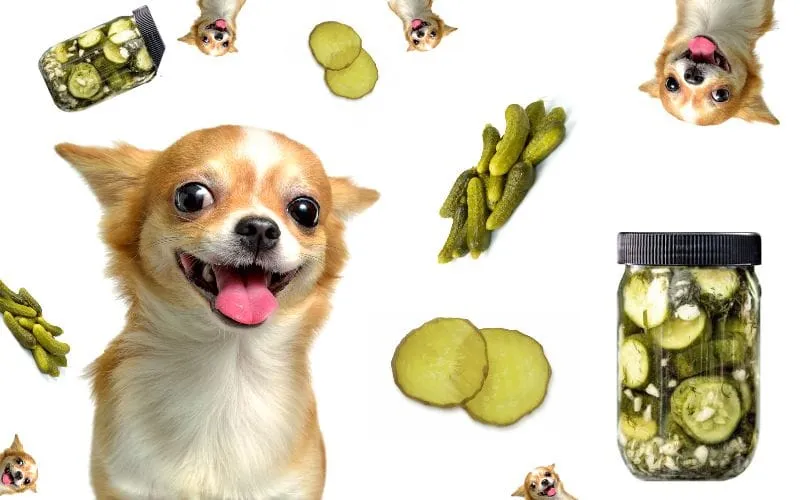
Fact 1: Dogs Pickles Love and Its Benefits
Why Dogs Love Pickles?
Diving into the quirky world of canine preferences, the question of why dogs love pickles may seem peculiar at first glance. However, it all boils down to their incredible sense of smell. Dogs possess an olfactory system that far surpasses our own, and pickles, with their pungent aroma, become an enticing treat for our furry friends.
The Sense of Smell: A dog's sense of smell is a powerful tool that guides their interactions with the world. The distinct scent of pickles, a combination of vinegar, spices, and brine, captures their attention in a way that other foods might not. It's like a symphony of scents that dogs find irresistible.
Varieties of Pickles: The world of pickles is diverse, offering various flavors and textures. From dill pickles to bread and butter pickles, the assortment provides dogs with a sensory experience akin to exploring different scents in their environment. The variety adds an extra layer of fascination for our canine companions.

Health Benefits for Dogs
Contrary to the common belief that pickles may not be suitable for dogs, there are surprising health benefits when offered in moderation. Understanding these advantages sheds light on the nutritional aspect of incorporating pickles into your dog's diet.
Antioxidant Properties: Certain types of pickles, particularly those made with natural ingredients, contain antioxidants. These compounds play a crucial role in neutralizing harmful free radicals in the body, contributing to overall health. The presence of antioxidants in pickles can be a welcome addition to your dog's diet.
Improved Digestion: The crunchy texture of pickles can serve as a natural teeth-cleaning mechanism for dogs. Additionally, the act of chewing on pickles stimulates saliva production, aiding in better digestion. While not a substitute for regular dog food, the occasional pickle can complement their diet and promote dental health.
Understanding why dogs are drawn to pickles and recognizing the potential health benefits allows us to make informed decisions as responsible pet owners. The key lies in moderation and choosing pickles without harmful additives. In the next sections, we'll delve into potential risks and how to safely incorporate pickles into your dog's treat repertoire.
Fact 2: Potential Risks and Safely Feeding
While pickles can offer some benefits to dogs, it's essential to be aware of potential risks associated with their consumption. Responsible pet ownership involves understanding these risks and making informed choices to safeguard your furry friend's well-being.
High Sodium Content: One significant concern when it comes to pickles is their high sodium content. Excessive sodium intake can lead to health issues such as increased blood pressure and water retention. For dogs, who are sensitive to sodium, this can pose a risk to their cardiovascular health. It's crucial to monitor your dog's overall sodium intake, considering other treats and meals in their diet.
Artificial Additives: Commercially available pickles often contain artificial additives, preservatives, and flavor enhancers. These can be harmful to dogs, causing adverse reactions or allergies. When offering pickles to your canine companion, opt for plain, unsalted varieties without added spices or artificial ingredients. Better yet, consider making homemade pickle treats to have better control over the ingredients.
How to Safely Feed Pickles to Dogs
Understanding the potential risks doesn't mean eliminating pickles from your dog's treat options entirely. With careful consideration and moderation, you can safely incorporate pickles into your dog's diet, ensuring an enjoyable and risk-free experience.
Moderation is Key: Like any treat, moderation is crucial when it comes to feeding pickles to dogs. Limit the quantity to avoid overconsumption of sodium and other potentially harmful substances. A small slice or cube as an occasional treat can provide a satisfying experience without compromising your dog's health.
Homemade Pickle Treats: For the utmost control over the ingredients, consider making homemade pickle treats for your dog. Use fresh cucumbers and create a pickle-like snack without the additives found in commercial products. This way, you tailor the treat to your dog's preferences while ensuring a safe and enjoyable indulgence.
By being mindful of the potential risks and adopting safe feeding practices, you can maintain a healthy balance between your dog's love for pickles and their overall well-being.
Fact 3: Common Myths and Pickle Alternatives
Common Myths Debunked
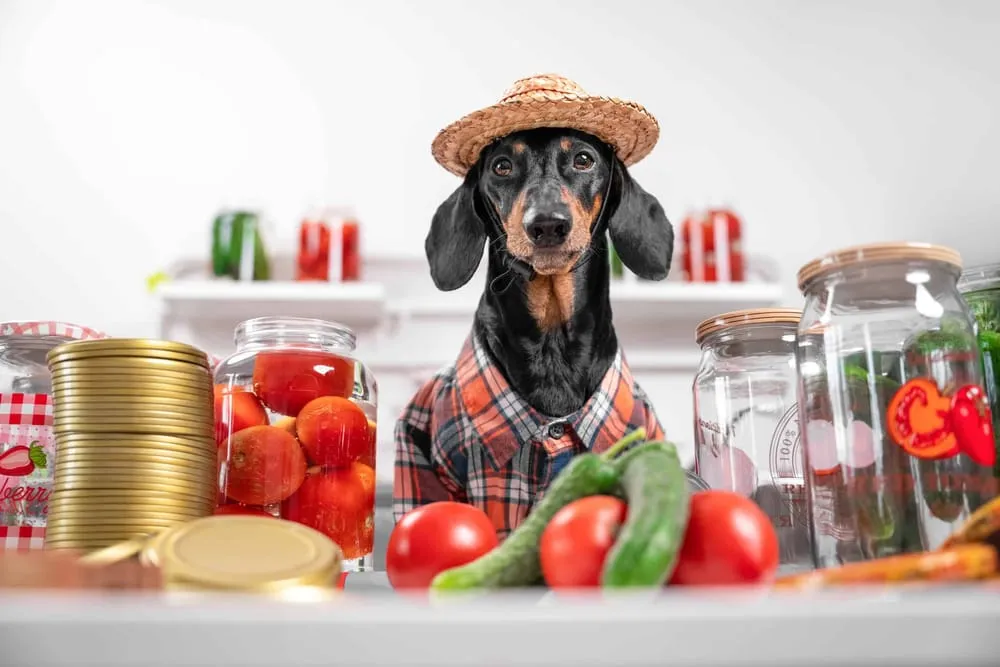
In the world of dogs and pickles, several myths and misconceptions have circulated, leading to confusion among pet owners. Let's debunk some of these common myths to provide clarity on what's fact and what's fiction.
Pickles as a Full Meal: One prevailing myth is that pickles can serve as a substitute for a regular dog meal. This is not true. While pickles might be an occasional treat, they lack the essential nutrients that a balanced dog diet requires. Pickles should be regarded as a supplementary treat rather than a nutritional meal replacement.
Pickles and Dog Breath: Contrary to another myth, pickles do not automatically lead to bad breath in dogs. While the strong scent of pickles might linger temporarily, it doesn't have a long-lasting impact on a dog's breath. Regular dental care remains essential for maintaining fresh breath in your furry friend.
Pickle Alternatives for Dogs
For pet owners who may be wary of feeding pickles to their dogs, there are alternative options that offer a similar crunchy experience without the potential risks associated with pickles.
Crunchy Vegetables: Opt for crunchy vegetables like carrots and cucumbers as a safe and healthy alternative to pickles. These vegetables provide the satisfying crunch that dogs enjoy while offering essential vitamins and minerals. Ensure to cut them into bite-sized pieces for easy consumption.
Commercial Dog Treats: Explore the wide array of commercial dog treats available specifically designed for canine consumption. Many of these treats are formulated to promote dental health, providing a crunchy texture that can satisfy your dog's desire to chew without exposing them to the risks associated with pickles.
By dispelling myths and presenting safe alternatives, we empower pet owners to make informed choices about their dog's treats. The next section will share funny stories of dogs and pickles, shedding light on the playful and amusing side of this unique canine fascination.
Fact 4: Funny Stories and Pickle Obsession of Dogs
Embark on a lighthearted journey into the amusing and endearing world of dogs and pickles. These funny stories highlight the playful and unexpected reactions that some dogs have when introduced to the world of pickles.
Picture Max, a curious Labrador, discovering a jar of pickles on the kitchen counter. Intrigued by the scent, he manages to grab the jar with his mouth, only to be caught in the act by his owner. The comical sight of Max attempting to enjoy his newfound pickle treasure becomes a delightful memory for the family.
Then there's Bella, the mischievous Dachshund, who, upon witnessing her owner's enjoyment of a pickle, insists on having her own. The determined little dog resorts to hilarious antics, attempting to reach the pickle on the table. The sight of Bella's persistence provides endless amusement for the household.
These funny stories reflect the unexpected joy and entertainment that dogs bring into our lives, especially when it comes to their quirky interactions with pickles. It's these moments of playfulness that strengthen the bond between humans and their four-legged companions.
The Pickle Obsession: Is It Normal?
As a dog owner, you may have observed your furry friend developing a particular fondness for pickles, bordering on obsession. But is this behavior normal? Let's delve into the reasons behind the pickle obsession and how to navigate it as a responsible pet owner.
Behavioral Aspects: Dogs, with their keen senses, are naturally drawn to strong smells. The pungent aroma of pickles can trigger a sensory experience that some dogs find captivating. Additionally, the crunchiness of pickles satisfies a dog's instinct to chew, providing both mental stimulation and oral gratification.
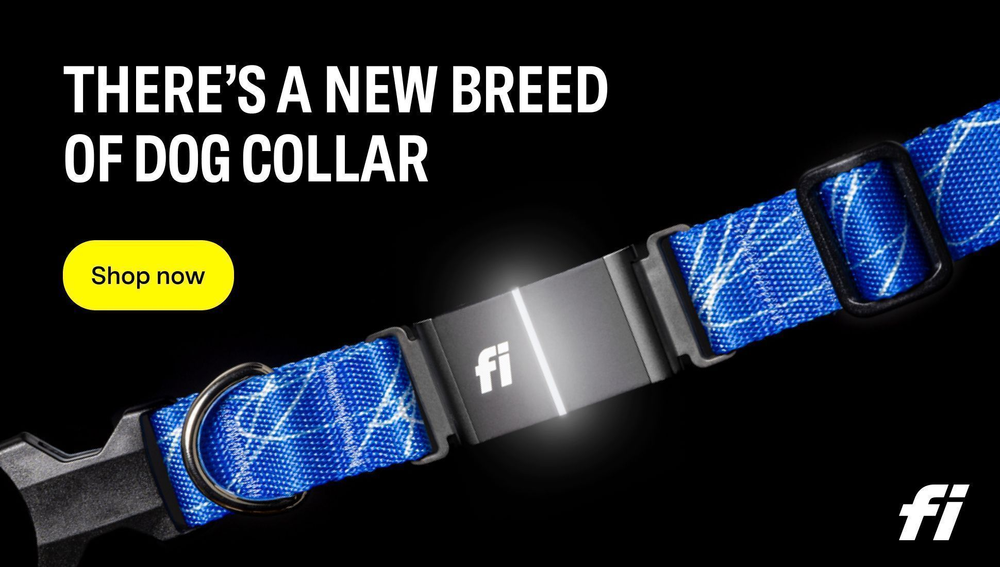
Tips for Curbing the Obsession: While a mild interest in pickles is harmless, excessive obsession may require intervention. Here are some tips to curb the pickle obsession:
- Diversify Treats: Introduce a variety of treats to your dog's diet to prevent fixation on a single type of food.
- Engage in Play: Stimulate your dog mentally and physically with interactive dog toys and playtime to divert their focus.
- Training Techniques: Implement positive reinforcement training to encourage desirable behaviors and discourage excessive fixation.
Understanding the underlying reasons for the pickle obsession allows you to address it effectively, ensuring a healthy and balanced relationship between your dog and their favorite snack. The following section includes an interview with a veterinarian, providing professional insight into the dogs-and-pickles dynamic.
Fact 5: Pickle-Related Products and Social Media Trends
Pickle Related Accessories
The fascination between dogs and pickles has inspired a market for pickle-related products designed exclusively for our canine companions. Explore the creative and entertaining world of doggy delights shaped around the beloved pickle theme.
Pickle-Shaped Toys: Imagine your dog's delight as they sink their teeth into a squeaky pickle-shaped toy. These shaped puzzle toys come in various sizes, textures, and materials, providing endless entertainment for your furry friend. From plush pickles for gentle chewers to durable rubber options for more robust play, there's a pickle-shaped toy for every dog's preference.
Pickle-Flavored Treats: For pet owners who want to indulge their dogs in the pickle craze, there are pickle-flavored treats available. These treats capture the essence of pickles without the potential risks associated with actual pickles. Check pet stores or online platforms for a wide range of pickle-flavored treats, ensuring a safe and enjoyable snacking experience for your dog.
Social Media Trends: Dogs and Pickles
The internet has witnessed the rise of adorable and amusing social media trends surrounding dogs and pickles. Explore the viral world of hashtags, challenges, and heartwarming posts that celebrate the unique bond between dogs and this unexpected snack.
Imagine scrolling through your social media feed and stumbling upon the #PicklePupChallenge. This trend encourages dog owners to capture their dogs' reactions when presented with a pickle. The result? A compilation of hilarious, heartwarming, and downright adorable videos showcasing the diverse ways dogs interact with pickles.
Another trend gaining momentum is #PicklePawtraits, where pet owners creatively incorporate pickles into their dogs' photoshoots. From pickle-themed costumes to playful pickle props, this trend celebrates the whimsical connection between dogs and pickles in a visually delightful manner.
Social media trends not only entertain but also create a sense of community among dog lovers. Engaging with these trends allows pet owners to share their own experiences and join a global celebration of the delightful and often amusing relationship between dogs and pickles.
As we conclude our exploration of the dogs-and-pickles dynamic, the next section features a custom message and invites readers to access exclusive content related to this fascinating topic.
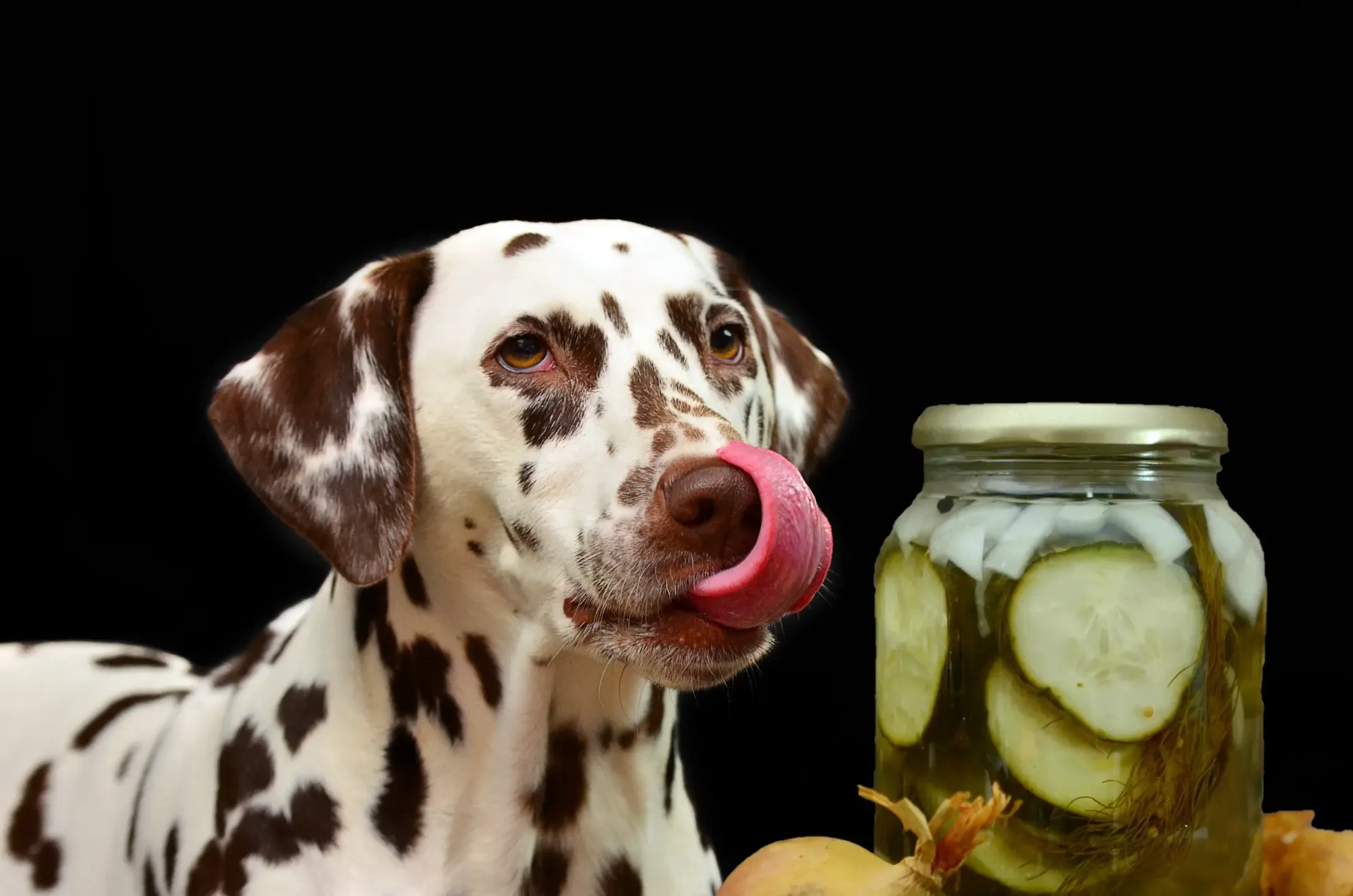
Conclusion
In conclusion, the connection between dogs and pickles is more intricate than meets the eye. While moderation is essential to avoid potential risks, understanding the factors that make pickles attractive to dogs can strengthen the bond between you and your pet. Embrace the quirks, but always prioritize your dog's well-being.
Frequently Asked Questions (FAQs):
- Can I give any type of pickle to my dog?
- It's best to stick to plain, unsalted pickles without any added spices or artificial additives.
- Are there pickles specifically made for dogs?
- Yes, there are dog-friendly pickle-shaped toys and treats available in pet stores.
- How often can I give pickles to my dog?
- Moderation is key. Limit pickle treats to occasional indulgences to avoid health issues.
- Why do some dogs become obsessed with pickles?
- The strong scent and crunchy texture of pickles can trigger a sensory experience that some dogs find irresistible.
- Are there any vegetables I should avoid giving to my dog as an alternative to pickles?
- Onions and garlic should be avoided, but many dogs enjoy crunchy vegetables like carrots and cucumbers in moderation.
